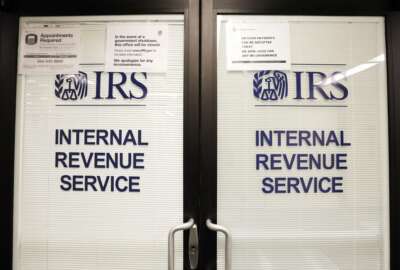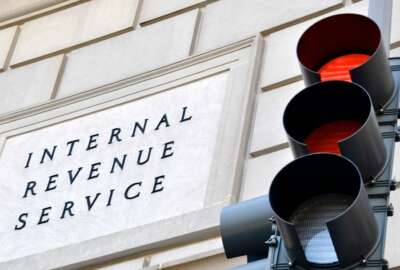Regular followers of the news learned (again) and in great detail what most of us already knew. Many if not most millionaires — and especially billionaires — don’t pay taxes. Period. Or, if they do, they pay a much smaller percentage on their income than ordinary folks do.
The Biden administration is seeking to pump new resources — from people to operating capital — into the Internal Revenue Service. IRS has been starved for years by politicians who either just don’t like taxes, don’t like them for their rich donors or think the IRS has been politicized. Efforts to farm out heavy-duty to private debt collectors have been tried. And failed.
ProPublica provided the documented proof that billionaires often don’t pay any taxes. Or if they do pay, it is nowhere near what many consider their fair share. Or in the same percentages that non-millionaires pay on their income.
So if the richest people in the nation don’t pay any (or much) in taxes, who does? Who keeps Uncle Sam afloat and pays for all those projects elected officials approve so they can remain in office?
Got a mirror handy?
A lot of that money comes from estate taxes that impact many of our families when our estates are distributed. And if you work for the government or are retired from it, you almost certainly have an estate. And it is probably more extensive than you think, which is why just about everybody should be aware of both current tax laws and pending proposals from the White House and other sources.
The chances of meaningful tax “reform,” as it would help you, are slim to none this year, or next year or the year after that. Too many people — accountants, lawyers, auditors, planners and lobbyists — depend on the complexity of our tax code for a living.
The imposition of a flat tax, or one with several brackets and no limit, would put them out of work. Even if you are a cockeyed optimist, it is best to plan for the status quo for the foreseeable future. And to plan on paying more taxes in the next few years than Warren Buffet, Bill Gates and Jeff Bezos.
But significant change is possible.
Changing estate tax rules and laws need to be understood — and, if necessary, dealt with — if you want your estate handled the way it should be handled. That means being aware of what Congress and the White House have in mind to make major changes in estate tax laws. Changes that could leave your family with a much bigger tax debt in the future.
The proposals are almost always labeled as “reforms,” a key to you to cover your assets.
For an update on estates and estate tax law, both current and proposed, I asked former IRS attorney Tom O’Rourke to join me on this week’s episode of Your Turn at 10 a.m. streaming here or on the radio in the Washington, D.C. area at 1500 AM. For the last several decades, he’s specialized in tax and estate law.
Many of his clients are current or former feds. Some of them are millionaires, thanks to their TSP balances or a paid-up home.
He says that virtually all feds are worth much more than they think, and that it is entirely possible you have a million dollar estate. But you need to know that, and then know what to do, to make sure the persons you want benefit. To make sure they aren’t hit with a big tax bite when the time comes.
Here’s a preview of what he’ll be talking about on today’s show:
A number of proposed changes to the tax laws have been introduced in Congress. Sen. Bernie Sanders has introduced the For the 99.5% Act that could significantly reduce the estate tax exemption. The president has also proposed several major changes in the tax laws. These changes could affect the income and estate tax planning strategies of federal employees and retirees.
While taxes certainly have an impact on all of us, they should not be the primary consideration in any estate plan. Rather, the most important goal is to make sure that you have a plan in place that protects you and your loved ones. At a minimum, all individuals need a basic estate plan that includes an advance medical directive, a personal financial power of attorney, and a will and/or a trust. Once this basic plan is in place, it can be refined to allow you to minimize tax liability.
The current federal estate tax exemption is $11.7 million per person. Thus, as a practical matter, estate taxes are not an issue in most estate plans. The For the 99.5% Act proposes to reduce the estate tax exemption to $3.5 million per person. Even at this reduced level, most federal employees and retirees will not need to be concerned about estate taxes.
President Biden proposes to repeal the favorable treatment for capital gains and the elimination of the stepped up basis rule. He also proposes to increase the top income tax rate from 37% to 39.6%. The president has promised that any changes in the tax law will not affect any taxpayer with income of less than $400,000 per year.
Capital gains are taxed at favorable rates. For most individuals, these rates are 15% or 20% — rates significantly lower than the rate of tax on other income. The president’s proposal would eliminate this preference and tax capital gains at the same rate as other forms of income.
Perhaps the most significant proposed change is to eliminate “stepped up basis.” Under current law, when an asset passes at the owner’s death, the tax basis of the asset is stepped up. For example, if someone bought a home for $35,000 in the 1960s that is worth $800,000 at the time of their death, the basis of the asset is ‘stepped up’ to its fair market value at the time of death. The increase in value of $765,000 completely escapes income tax. If the president’s proposal becomes law, any previously untaxed appreciation would be taxed at the death of the asset’s owner.
While the proposed changes may not affect many individuals, these changes at least provide an opportunity to review your existing estate plan and make sure it continues to meet your needs. If your estate could be affected by the proposed changes, it would be advisable to meet with your attorney to determine what, if any, steps you may take to limit the adverse impact of these changes on you and your loved ones.
Nearly Useless Factoid
By Jonathan Tercasio:
From 1912 to 1948, Olympic juries awarded official medals for painting, sculpture, architecture, literature and music. Every work had to be inspired, in some way, by sports.
Source: The Atlantic
Copyright
© 2024 Federal News Network. All rights reserved. This website is not intended for users located within the European Economic Area.





